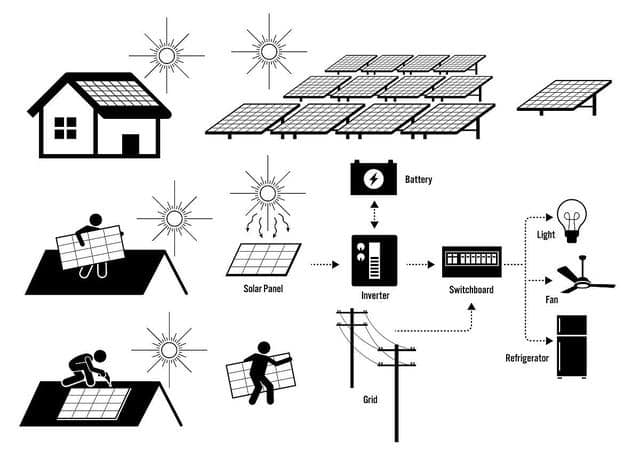Solar Energy information
태양 에너지, 태양에 의해 방출 된 빛나는 힘, is a formidable source of heat, catalyst for chemical reactions, and a potential powerhouse for electricity generation. As we stand at the cusp of a growing global energy demand, exploring and harnessing solar energy has become a pivotal solution. The sheer abundance of solar radiation that reaches the Earth far surpasses our current and future energy needs.
Solar Radiation and Earth:
Solar energy is harnessed through the electromagnetic radiation emitted by the sun. This radiation reaches the Earth in various forms, including light and heat. The Earth receives an astonishing amount of solar radiation, estimated to be around 173,000 terawatts continuously. Understanding and leveraging this influx of energy is crucial for sustainable energy solutions.

다양한 응용:
Solar energy manifests in diverse ways, making it a versatile resource. The primary applications include:
- Heat Production: Solar thermal systems capture sunlight to generate heat for residential, 광고, and industrial purposes.
- Chemical Reactions: Photosynthesis, a process driven by solar energy, is the foundation of life on Earth. 추가적으로, solar energy can be used to drive chemical reactions for various industrial processes.
- 전기 생성: Perhaps the most prominent application, 광전지 (PV) cells convert sunlight directly into electricity. The efficiency and affordability of solar panels have improved significantly in recent years, making solar power an increasingly viable option.

Addressing Energy Demands:
The total solar energy potential dwarfs our current and projected energy needs. If we can harness even a fraction of this vast resource, it could revolutionize the global energy landscape. Solar energy has the potential to mitigate our dependence on finite and environmentally detrimental fossil fuels.
Advancements in Solar Technologies:
Ongoing research and development continue to enhance solar technologies. Innovations such as thin-film solar cells, concentrated solar power, and solar tracking systems are pushing the boundaries of efficiency and affordability. These advancements are essential for making solar energy more accessible on a large scale.

환경에 미치는 영향:
Harnessing solar energy contributes significantly to reducing our carbon footprint. Unlike traditional energy sources that emit greenhouse gases, solar power is a clean and renewable alternative. Embracing solar energy is a crucial step toward achieving sustainability goals and combating climate change.
결론적으로, solar energy stands as a beacon of hope in our quest for sustainable and clean energy sources. The sheer abundance of solar radiation, coupled with technological advancements, positions solar power as a key player in our energy future. By investing in solar technologies and fostering a global shift toward renewable energy, we can harness the power of the sun to meet and exceed our energy needs while preserving the health of our planet.
문의하기 WhatsApp을 통해/ 이메일, 또는 양식을 작성해 주세요, 최대한 빨리 연락드리겠습니다.
